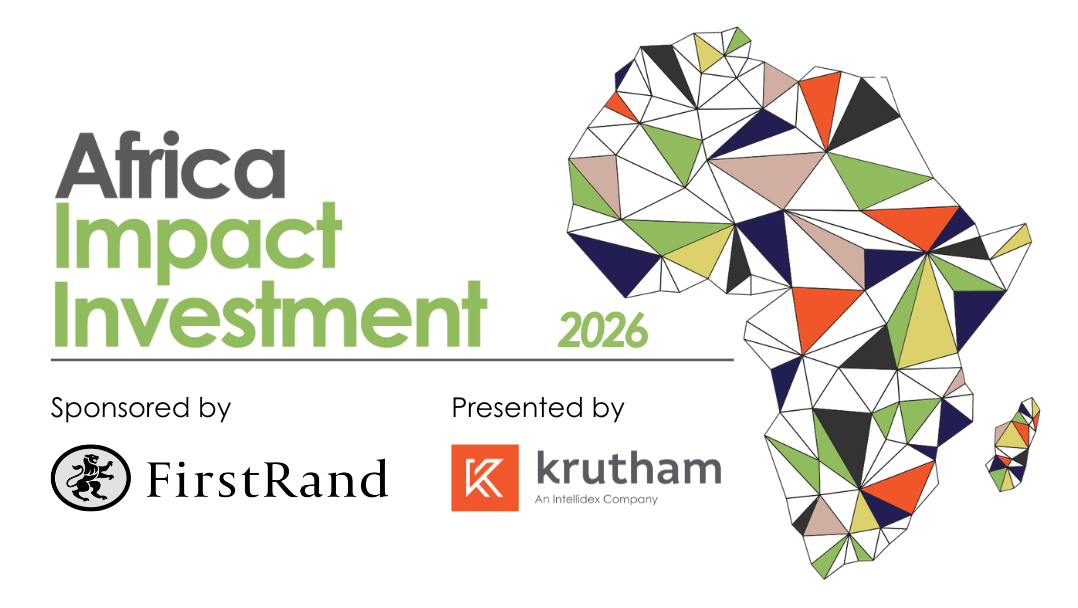This award applies to funders deploying capital to support impact projects. These can include pension funds, endowments, corporations, banks, governments, development finance institutions, high-net-worth individuals, private equity, venture capitalists and public funders. The award seeks to highlight funders who have opted for a non-traditional funding approach, either as a provider of catalytic capital or a third-party investor deploying capital into an innovative structure.
Phatisa
About
Phatisa’s objective is to raise and invest funds to feed people in sub-Saharan Africa, addressing the needs outlined in SDG 2: Zero Hunger. It takes to heart its role as a steward of capital and endeavours to maximise impact by mobilising capital flows into African markets to unlock business growth in agri-and food-related investments, with some allocation to affordable middle-income housing.
The majority of Phatisa’s capital allocation (through its food funds), is deployed with the primary intention of contributing positively to building sustainable food systems in Africa.
Generally, Phatisa seeks to build inclusive businesses which provide broad benefits to society, including supporting quality jobs.
TAF2 focuses specifically on ensuring financial success and building profitable businesses and linking base-of-the-pyramid beneficiaries to business value chains.
The problem
TAF2 was raised off the success of Phatisa’s first technical assistance facility, TAF. This facility is an extension of Phatisa’s private equity investment fund and only portfolio companies that are investees of TAF are eligible for TAF2 funding for specific projects. The facility supports high impact, inclusive businesses that would not be able to attract traditional finance without assistance. The projects supported each aim to address specific challenges to sustainable food systems, including livestock health, climate change and biodiversity loss.
Use of impact investment capital
TAF 2 provides grant funding for catalytic impact projects which support inclusive business growth. Companies are required to contribute a minimum of a 20% cost share, with TAF2 providing the remaining 80% as grant funding. TAF2 is dedicated to enabling high-impact companies to unlock private capital by derisking investments, often through support of project pilots for the purposes of delivering proof of concept
Scalability
TAF2 provides support to businesses which is designed to enable these businesses to attract private capital, which can be leveraged to scale and replicate projects over time.
Addressing challenges
To address the most significant challenges that it faces, Phatisa leverages its partnerships with academic institutions, the private sector and other technical assistance facilities.
In addition, Phatisa’s strategy for managing risk includes embedding key risks into a robust impact monitoring and management framework.
Further, Phatisa engages actively with Impact Frontier’s Impact Frontier’s five dimensions of impact, presenting an example of how investors can utilise readily available standards, tools, principles, frameworks or guidelines to underpin their intentional and proactive approach to pursuing impact alongside financial returns.
What makes Phathisa unique?
TAF2 provides support to portfolio companies aimed at empowering these businesses to attract private capital. TAF2’s innovative approach of combining both private equity and grants enables Phatisa to leverage entrepreneurial drive, support innovation and generate lasting, sustainable investment.
TAF2 will also be used to fund ecosystem development through research projects which will provide insights into lessons learned for maximising efficiency and effectiveness of approaches, enabling replication at scale.
Further, Phatisa supports collaboration, hosting workshops for key stakeholders including other private equity fund managers looking to implement a scaffolding finance approach.
Impact
Impact is at the core of Phatisa’s investment approach and is anchored in a robust impact measurement and management system. This system informs the development of a comprehensive impact monitoring and evaluation framework for TAF2, including a theory of change, key assumptions and impact indicators. The framework includes short-term outputs, medium-term outcomes and long-term impact goals.
Having detailed and carefully considered theories of change with good, internationally accepted indicators enables Phatisa to make a solid and defendable impact case. While the frequency of data collection varies by indicator, Phatisa works closely with portfolio companies to get an update on progress against indicators at least quarterly.
Best in class impact is achieved by setting fund-level additionality targets, with progress tracked over time. Once all funding has been disbursed, Phatisa plans to develop a publicly available report on lessons learned in the deployment of a technical assistance facility in Africa.
Fund level additionality targets
- Increased food production for portfolio companies
- Increased yields
- New routes to markets for unserved or underserved beneficiaries
- Number of base of pyramid beneficiaries (and what percentage of these are women or women-led entities)
- Number of net zero by 2050 business plans developed
To date, through projects Root, Iceberg and Toonjie, TAF2 has supported the training of hundreds of farmers, the distribution of vaccines to multiple African markets and the conducting of initial emissions baseline assessments and baseline botanical surveys. These initial findings set the stage for significant impact over time.
Project Root
Aims to bring poultry and ruminant vaccines to smallholder farmers in eight African countries to support route to market.
Impact metrics
- Number of small-scale farmers trained
- Communication channels established
In Africa, there are an estimated 33-million smallholder farms which are responsible for generation of up to 70% of the food supply. For these farmers, access to vaccinations that need to be administered by vets is limited, which increases the risk of livestock deaths from preventable diseases. Through TAF 2, Phatisa is supporting increasing vaccination penetration in underserved markets in Africa, and educating smallholder farmers on the importance of vaccinations and nutrition, thereby mitigating the risk of livestock loss. This includes introducing vaccines into these markets that can be administered via eyedrop and do not need a stable cold chain, meaning that the farmers themselves can administer these vaccines.
Project Iceberg
Aims to promote development of net zero strategies.
Impact metrics
- Number of GHG baselines documented
- Number of alternative energy assessments
- Number of emission reductions and energy efficiency projects identified and approved
- Number of companies linked to financial sources for emission reductions projects
African countries are particularly vulnerable to the effects of climate change, with food systems across the continent at significant risk of destabilisation. At the same time, food systems contribute roughly one third of global GHG emissions.
Phatisa works with portfolio companies on strategies for both mitigation (emissions reduction) and adaptation to climate change to ensure sustainability and resilience in the face of a rapidly changing environment.
Project Toonjie
Aims to restore biodiversity to help save water and rebuild soil health.
Impact metrics
- Number of alien species identified
- Detailed removal plan developed
- Waterways mapped
- Number of soil tests conducted, and
- outputs from these soil tests
Biodiversity is under threat globally. This project focuses on restoring biodiversity, mapping clear waterways and improving soil health, which will all contribute to improved agricultural yields.
Click here to download the case study
Share
This research report was issued by Krutham South Africa Pty Ltd.
Krutham aims to deliver impartial and objective assessments of securities, companies or other subjects. This document is issued for information purposes only and is not an offer to purchase or sell investments or related financial instruments. Individuals should undertake their own analysis and/or seek professional advice based on their specific needs before purchasing or selling investments.
The information contained in this report is based on sources that Krutham believes to be reliable, but Krutham makes no representations or warranties regarding the completeness, accuracy or reliability of any information, facts, estimates, forecasts or opinions contained in this document. The information and opinions could change at any time without prior notice. Krutham is under no obligation to inform any recipient of this document of any such changes.
No part of this report should be considered as a credit rating or ratings product, nor as ratings advice.
Krutham does not provide ratings on any sovereign or corporate entity for any client.
Krutham, its directors, officers, staff, agents or associates shall have no liability for any loss or damage of any nature arising from the use of this document.
Disclosure
The opinions or recommendations contained in this report represent the true views of the analyst(s) responsible for preparing the report. The analyst’s remuneration is not affected by the opinions or recommendations contained in this report, although his/her remuneration may be affected by the overall quality of their research, feedback from clients and the financial performance of Krutham group entities.
Krutham staff may hold positions in financial instruments or derivatives thereof which are discussed in this document. Trades by staff are subject to Krutham’s code of conduct which can be obtained by emailing mail@krutham.com.
Krutham may have, or be seeking to have, a consulting or other professional relationship with the companies, sovereigns or individuals mentioned in this report. A copy of Krutham’s conflicts of interest policy is available on request by emailing mail@krutham.com. Relevant specific conflicts of interest will be listed here if they exist.
- Krutham provides independent advice and independent research to a wide range of investors and financial institutions on Eskom, Denel, Transnet, Land Bank and SAA. Krutham’s interactions with all clients on Eskom, Denel, Transnet, Land Bank and SAA may include business confidential information but does not include MNPI and so does not provide a conflict. Krutham does not ‘act’ or ‘advocate’ for or ‘represent’ any of these clients. Krutham has regular interactions with government, Eskom, Denel, Transnet, Land Bank, SAA and other related entities connected with the SOE situation but does not provide paid consulting services or paid advice to any of these entities. These interactions are governed by Krutham’s own conflicts of interest policy as well as secrecy rules of the respective institutions or state-owned companies.
- Krutham provides a range of services into ‘organised business’ groupings in South Africa, which includes independent bespoke research and advice. Krutham is compensated for these services. Krutham does not ‘act for’ or ‘advocate’ for or ‘represent’ any of these clients.
- Krutham is currently involved in policy design work on a number of government priorities.
Copyright © 2023. All rights reserved. This document is copyrighted to Krutham South Africa Pty Ltd.
This report is only intended for the direct recipient of this report from a Krutham group company employee and may not be distributed in any form without prior permission. Prior written permission must be obtained before using the content of this report in other forms including for media, commercial or non-commercial benefit.

